Elias Sime reflects on the destructive nature of technology in Venice
In his solo show ‘Elias Sime: Dichotomy ፊት አና ጀርባ’ at the Venice Biennale 2024, the artist spotlights technology's destructive nature for humans and the environment
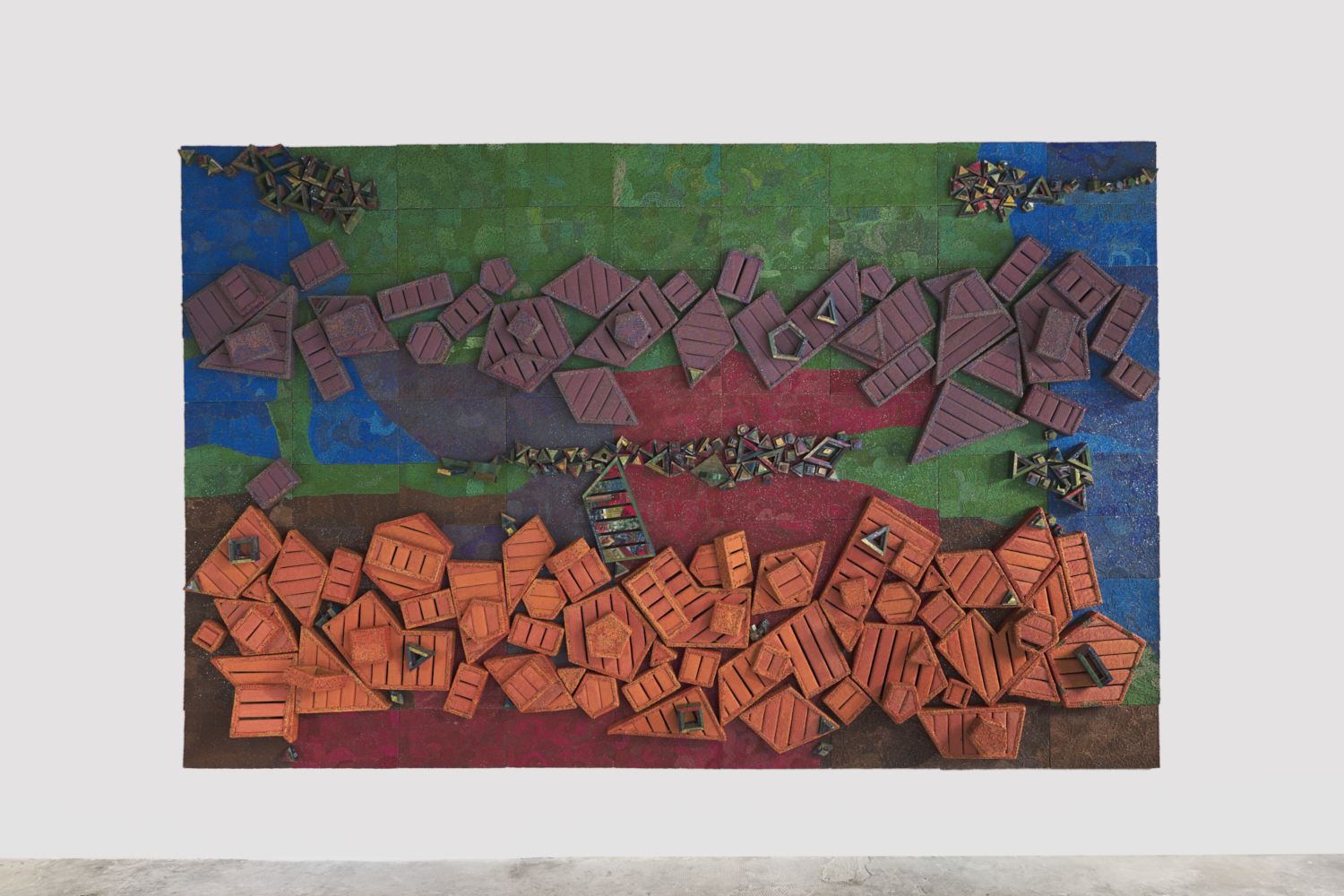
At a glance, Elias Sime’s visually appealing large-scale wall works look like painted art pieces.
The work involves repurposing electronic parts, including electrical wires, keyboards, and motherboards. The materials are mainly sourced from Mercato, the biggest open-air market in Africa, in the Ethiopian artist’s hometown of Addis Ababa. (The market is one of the places where the West dumps its technological waste on the continent.)
In his new, expansive solo show Elias Sime: Dichotomy ፊት አና ጀርባ showing at this year’s Venice Biennale, the artist spotlights technology's destructive nature for humans and the environment. In an interview, he noted that he isn’t against using technology but calls for restraint.
“Technology has become an addiction to people from the time they are born,” Sime tells Wallpaper*. By way of example, he points to how technology has changed the relationship between humans. “When we [fell] in love in the past, we used to see eye to eye. We touched each other. We hugged each other. Today, you can sit [at] the same table and exchange ‘I love you’ through [a gadget] but not through seeing each other.”
Elias Sime in Venice, highlighting the flip side of technology
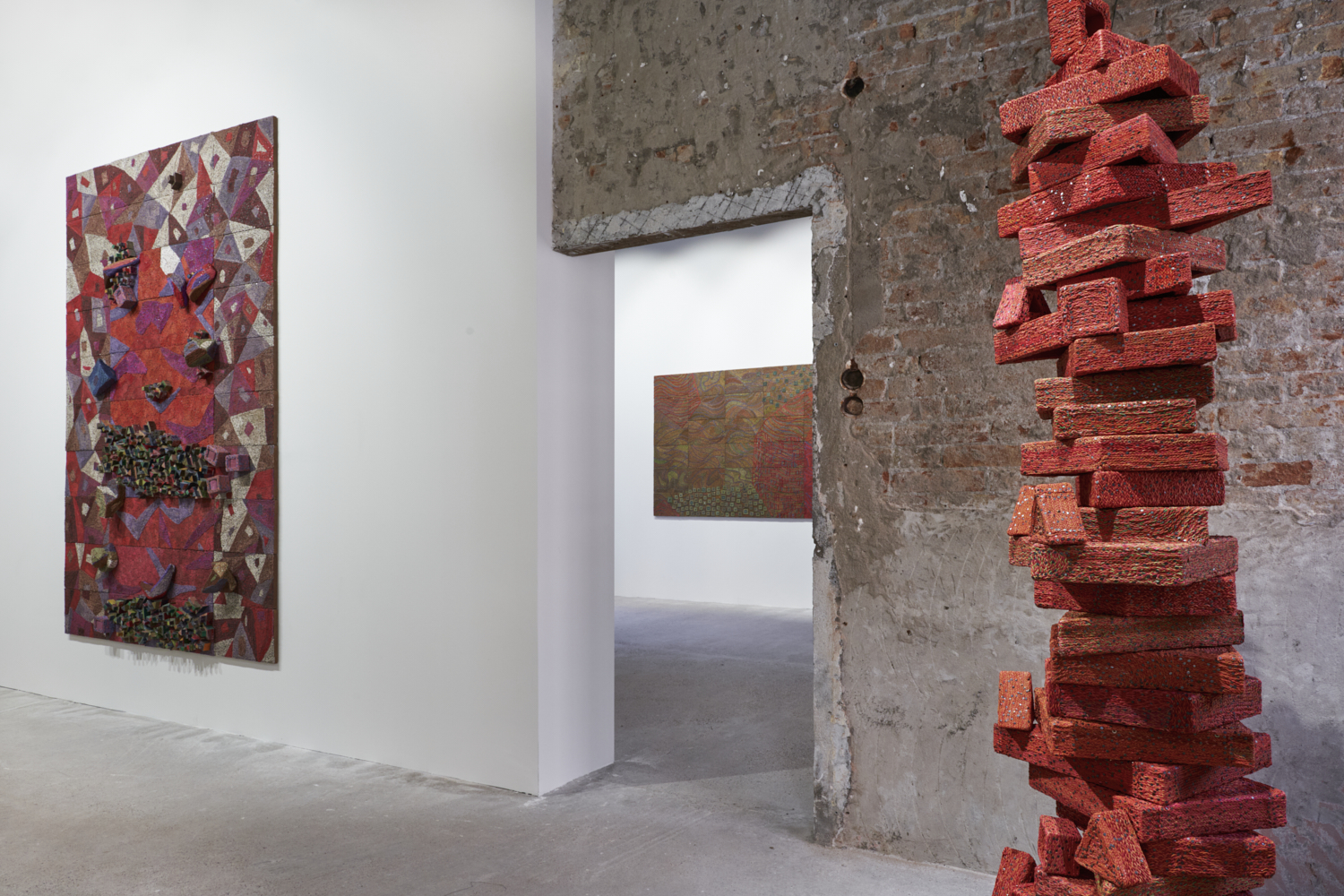
Installation view of Elias Sime: Dichotomy
That sentiment, the extraction of materials from nature, and the devastation that follows in its wake are explored in the show, an official collateral event of the 60th edition of the Biennale. It opens on April 17th and will be on view through November 24 at Tanarte, Castello, close to Arsenale, one of the main venues of the event referred to as the ‘Olympics of the art world.'
Co-curated by his longtime collaborator, Anthropologist Meskerem Assegued, and Felicity Korn, curator at The Kunstpalast, the show features new art pieces, including six wall works (made of electrical components and wires on wooden panel) and a large-scale braided wire sculpture. It also builds on the artist’s Tightrope series, which he started developing in 2009, which examines the extraction of materials used to create technology gadgets.
The work reveals what is “behind the scenes,” says Sime. “There are two sides to everything. There’s a flip side of us that’s not visible to the public.” Assegued adds: “One of the things that [was] constantly on my mind [co-curating this exhibition was] how do I tell the story? How do I allow the audience to walk in and feel the power of the work?”
Wallpaper* Newsletter
Receive our daily digest of inspiration, escapism and design stories from around the world direct to your inbox.
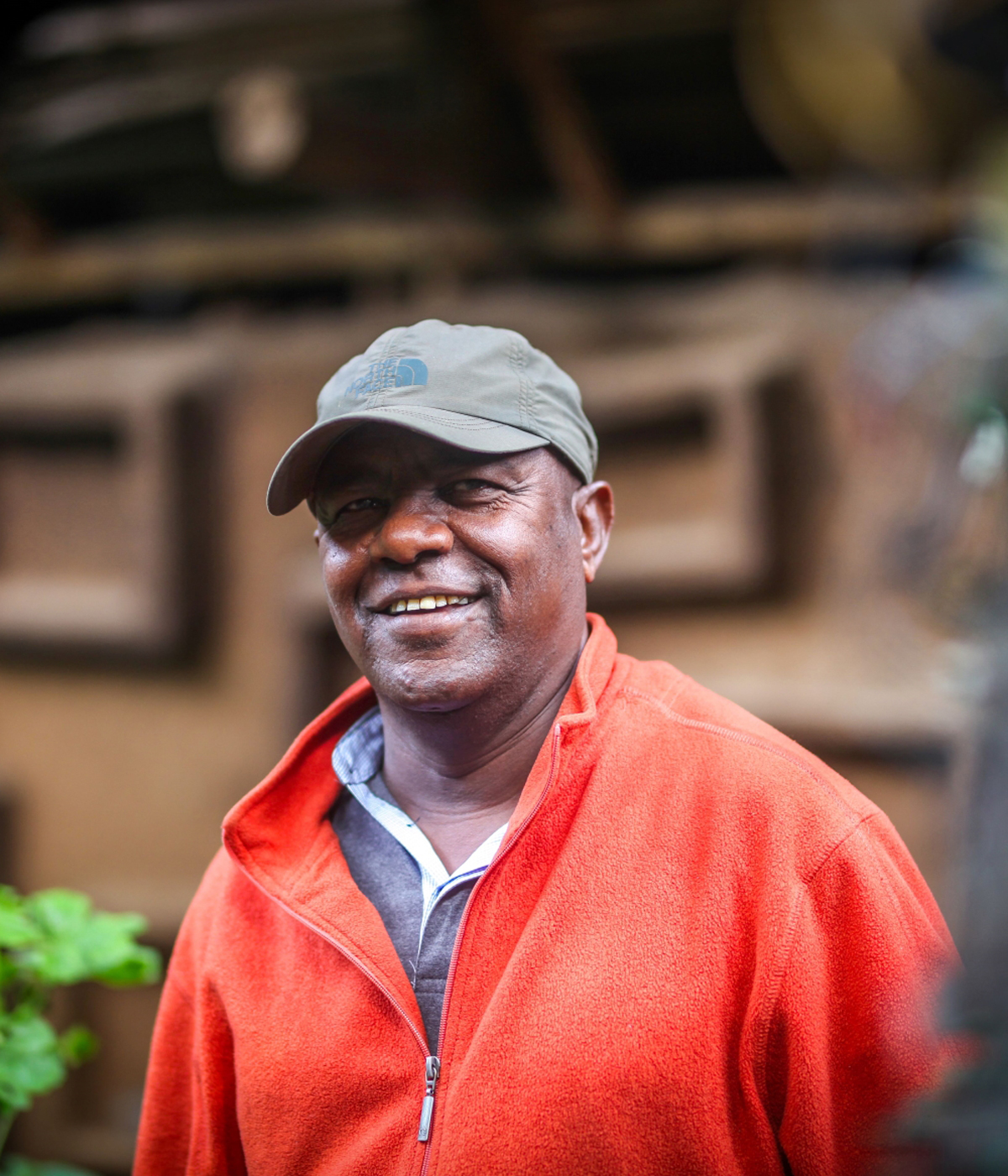
Elias Sime
Some of the work in the Elias Sime: Dichotomy ፊት አና ጀርባ exhibition will be included in the artist’s retrospective, which will be staged at the organizing institution, the Kunstpalast in Germany from March to June 2025.
Sime was born and raised in Addis Ababa, where he still lives and works. His work has been shown locally in his home country since the 1990s. It has also been seen around the world, including at the 2022 Venice Biennale, Dak’Art Biennale of Contemporary African Art in Dakar, Senegal, Arnolfini in Bristol, United Kingdom, Royal Ontario Museum in Toronto, Canada, and the Metropolitan Museum of Art, New York, and the Studio Museum in Harlem, both in the United States. His work is also in the permanent collections of more than 40 institutions, including the Norval Foundation in South Africa, the 21st Century Museum of Contemporary Art in Japan, and the Metropolitan Museum of Art in the United States.
The 2020 Hugo Boss Prize nominee is quick to credit his work and success to his collaboration with curator Assegued, whom he’s been working with for over two decades: “I want you to know that the work that you see here is a collaboration of the two of us,” says Sime. “And what I do, where I am now, is due to that collaboration.”
The two individuals founded and designed Zoma Museum, the sprawling, environmentally conscious international art center in Addis Ababa. It houses a gallery, library, museum shop, art and vernacular school, elementary school, children’s center, museum shop, and an amphitheater. They also recently founded and designed a new cultural hub with facilities including a library, café, culinary school, gardens, and a waterfall.
What’s next for Sime and Assegued in their collaborative efforts and projects?
“The next stage, which was a thought from the beginning, is how do we pass it on because we're not young anymore, and who's going to take over?” says Assegued. “So now one of the main things we're spending our time on is building institutions so we can become advisors and be on the side so it could be run by young people.”
‘Elias Sime: Dichotomy ፊትአናጀርባ’ is a Collateral Event of the 60th International Art Exhibition – La Biennale di Venezia. Presented by the Kunstpalast Düsseldorf at Spazio Tana, Castello
-
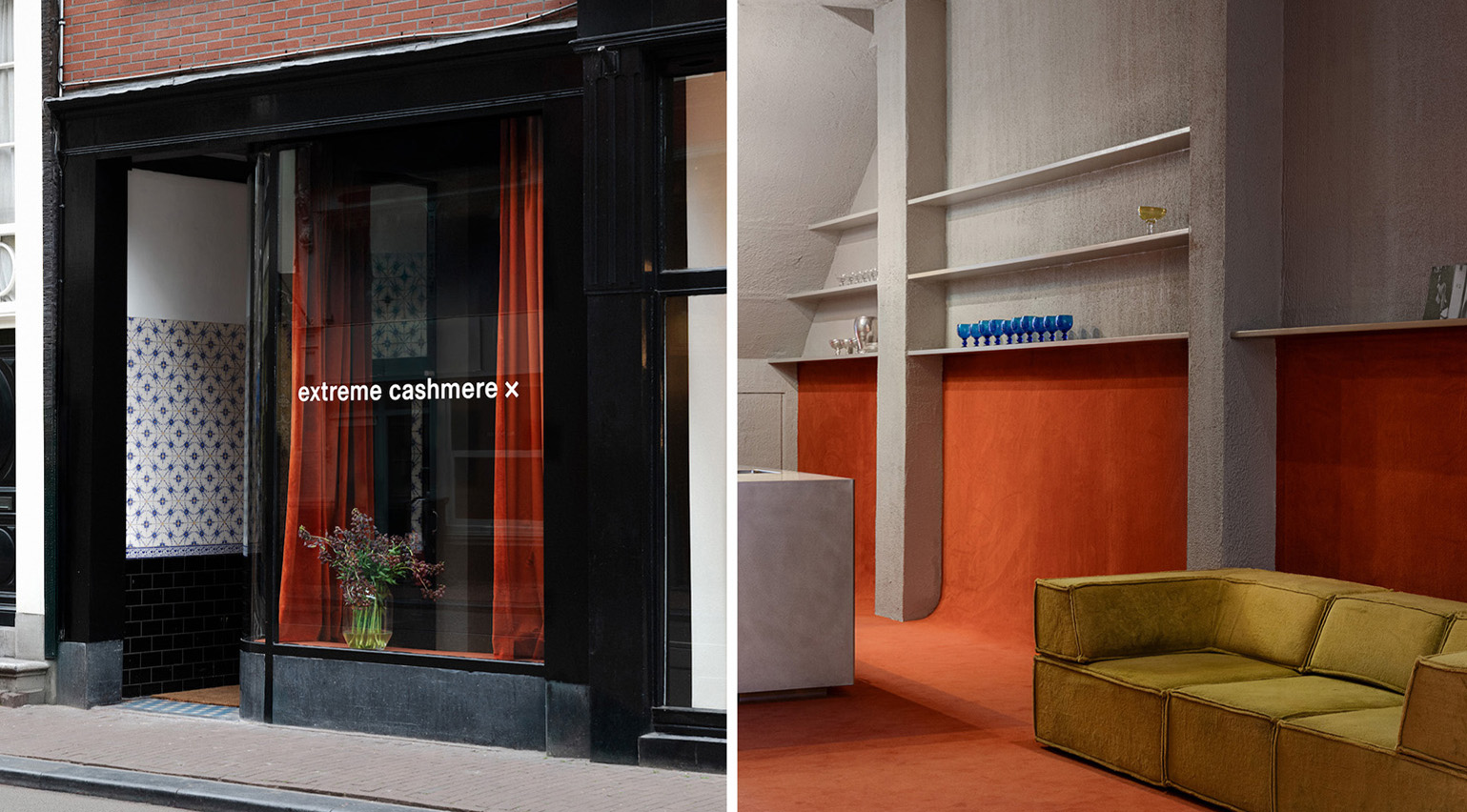 Extreme Cashmere reimagines retail with its new Amsterdam store: ‘You want to take your shoes off and stay’
Extreme Cashmere reimagines retail with its new Amsterdam store: ‘You want to take your shoes off and stay’Wallpaper* takes a tour of Extreme Cashmere’s new Amsterdam store, a space which reflects the label’s famed hospitality and unconventional approach to knitwear
By Jack Moss
-
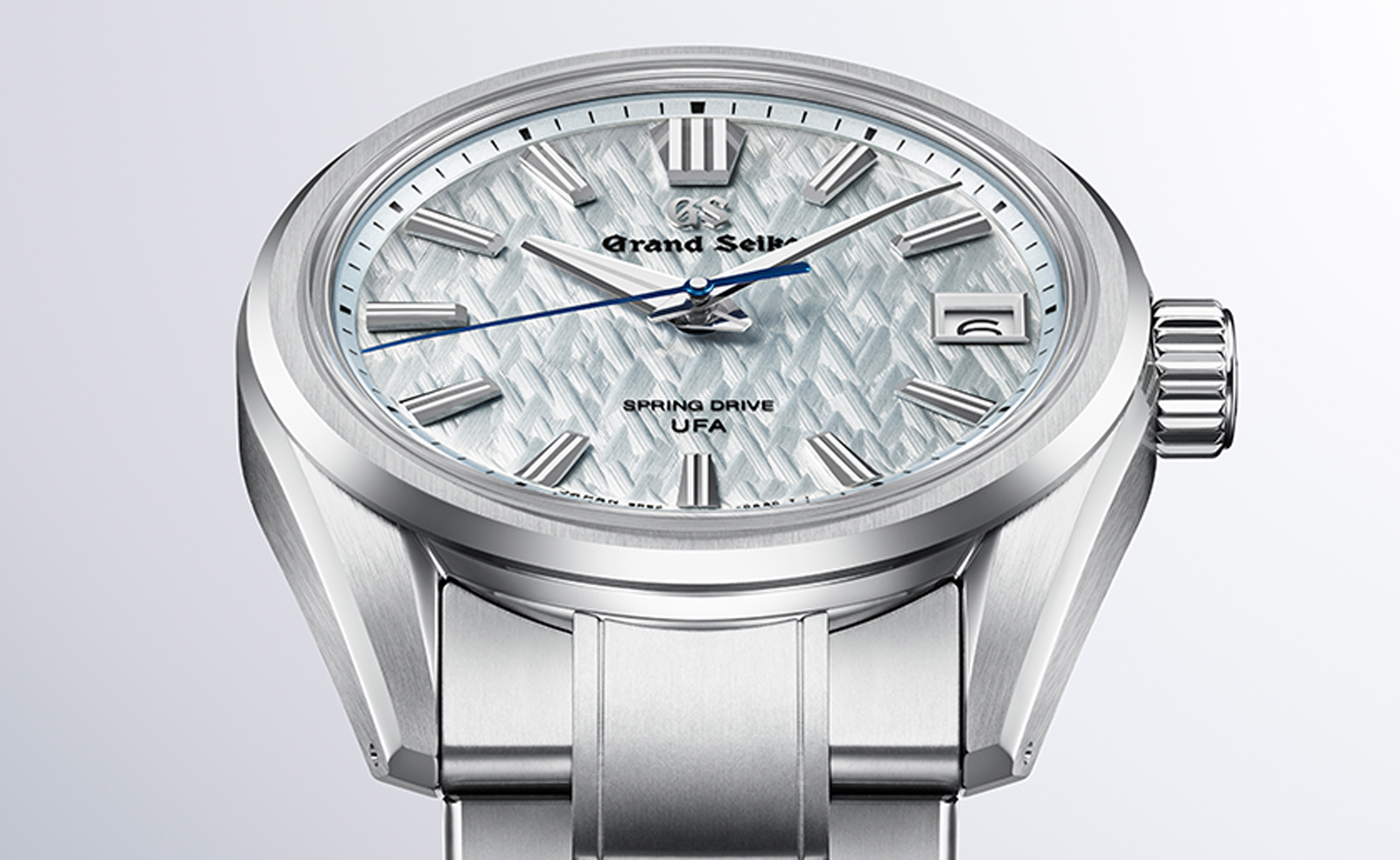 Titanium watches are strong, light and enduring: here are some of the best
Titanium watches are strong, light and enduring: here are some of the bestBrands including Bremont, Christopher Ward and Grand Seiko are exploring the possibilities of titanium watches
By Chris Hall
-
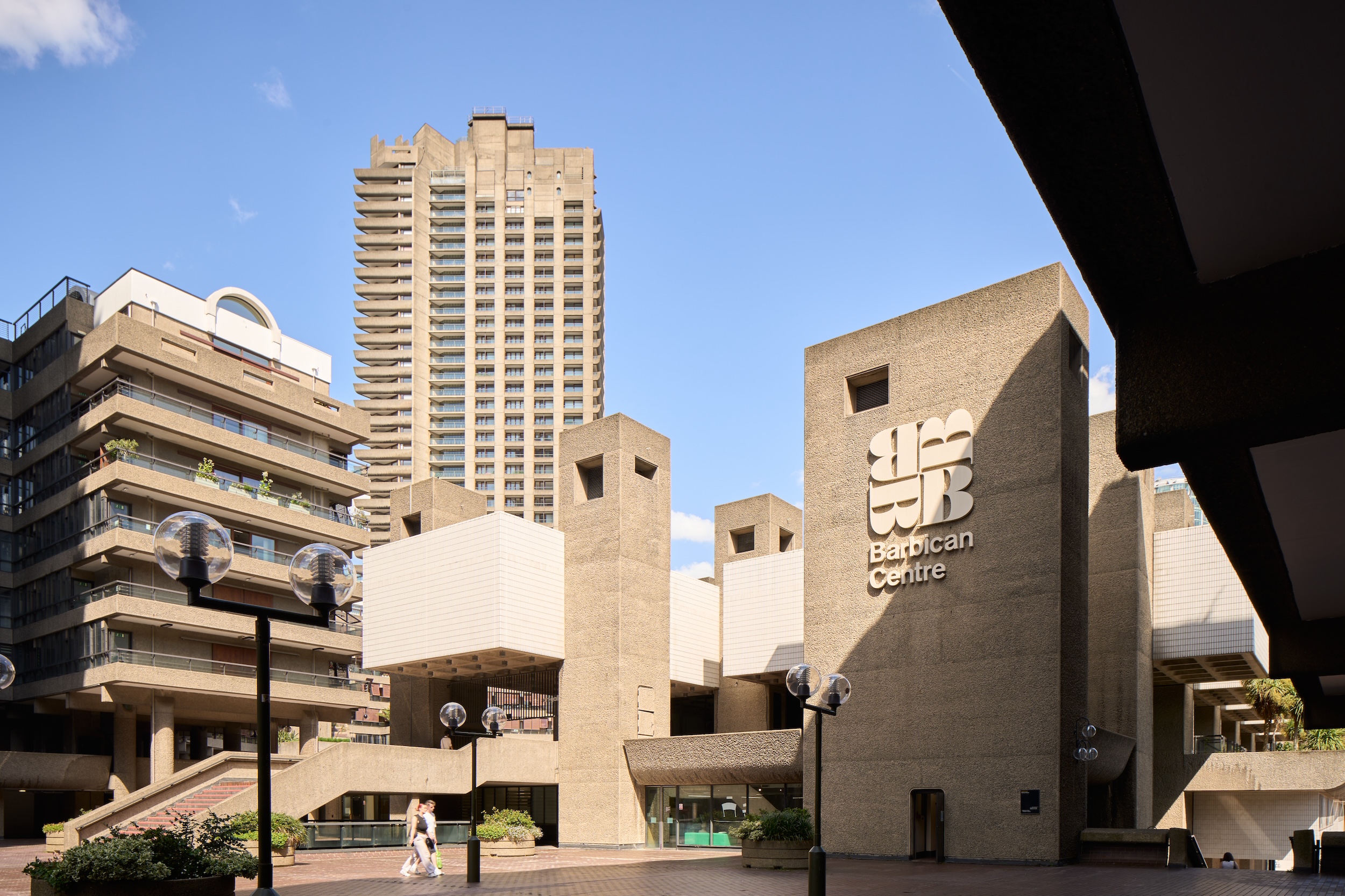 Warp Records announces its first event in over a decade at the Barbican
Warp Records announces its first event in over a decade at the Barbican‘A Warp Happening,' landing 14 June, is guaranteed to be an epic day out
By Tianna Williams
-
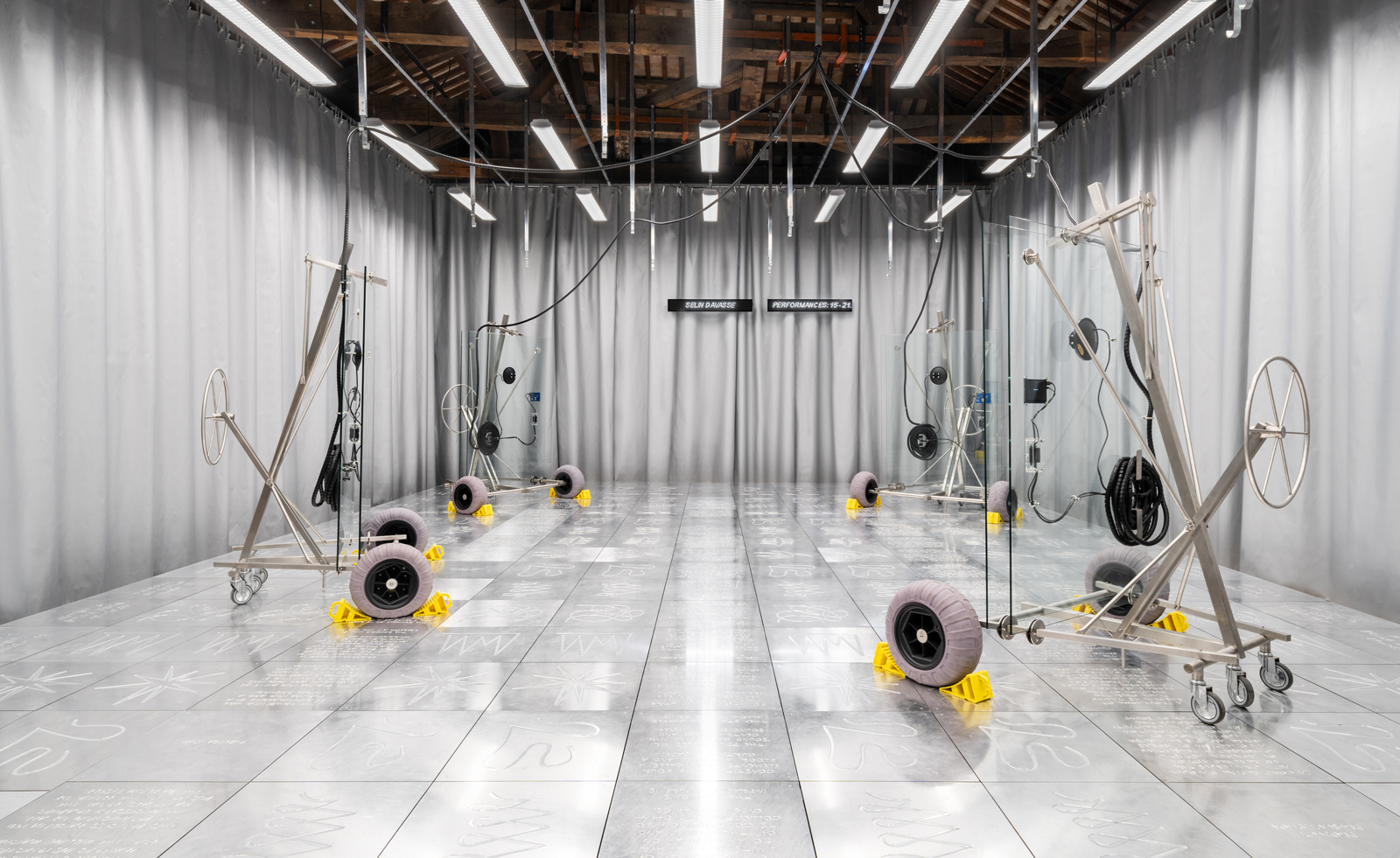 Don't miss Luxembourg's retro-futuristic lab pavilion in Venice
Don't miss Luxembourg's retro-futuristic lab pavilion in VeniceAs the Venice Biennale enters its last few weeks, catch 'A Comparative Dialogue Act' at the Luxembourg Pavilion
By Amah-Rose Abrams
-
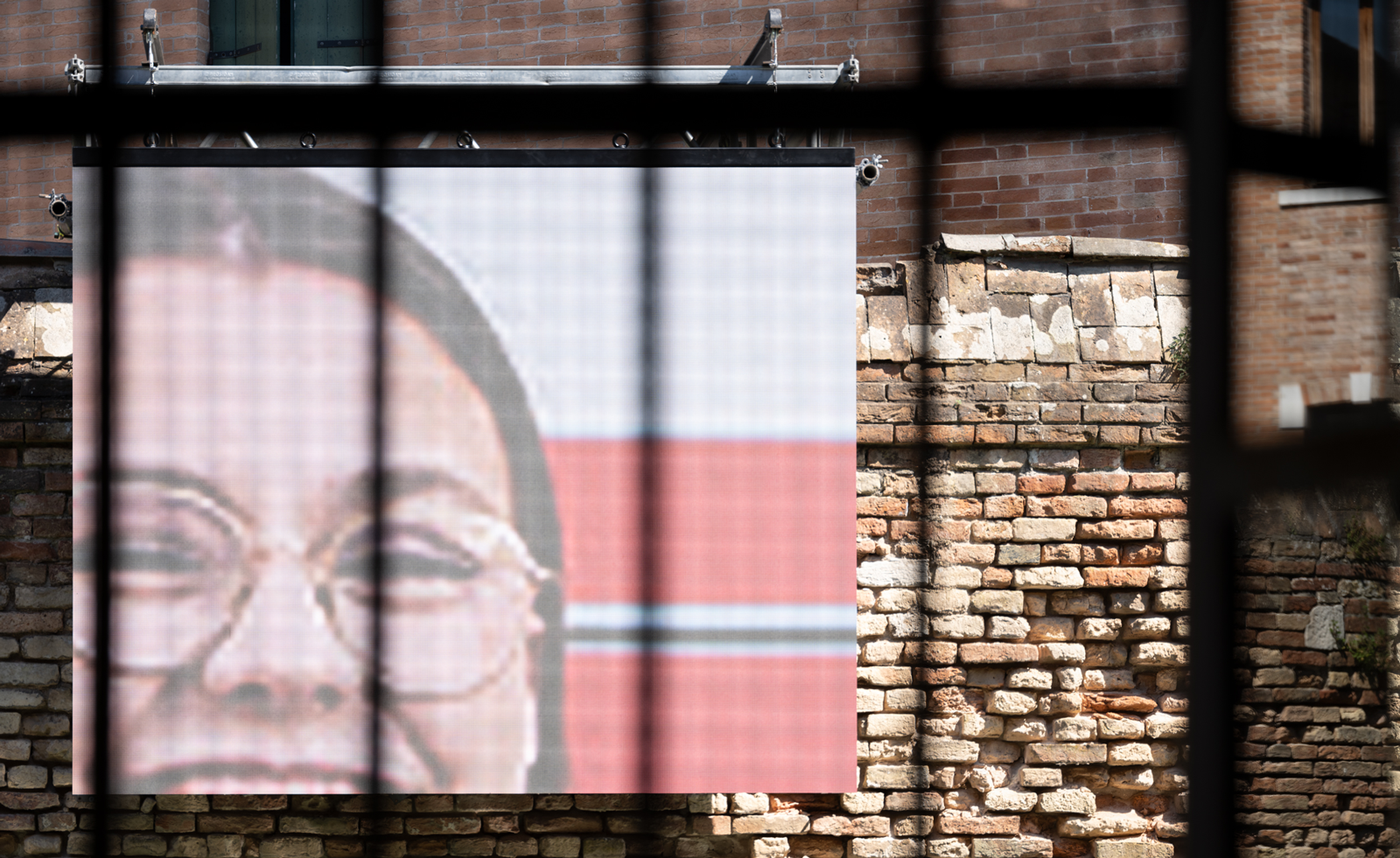 ‘Everything human-made is of interest to me’: Hildigunnur Birgisdóttir in Venice
‘Everything human-made is of interest to me’: Hildigunnur Birgisdóttir in VeniceArtist Hildigunnur Birgisdóttir explores consumerism at the Icelandic Pavilion at the Venice Biennale 2024
By Hannah Silver
-
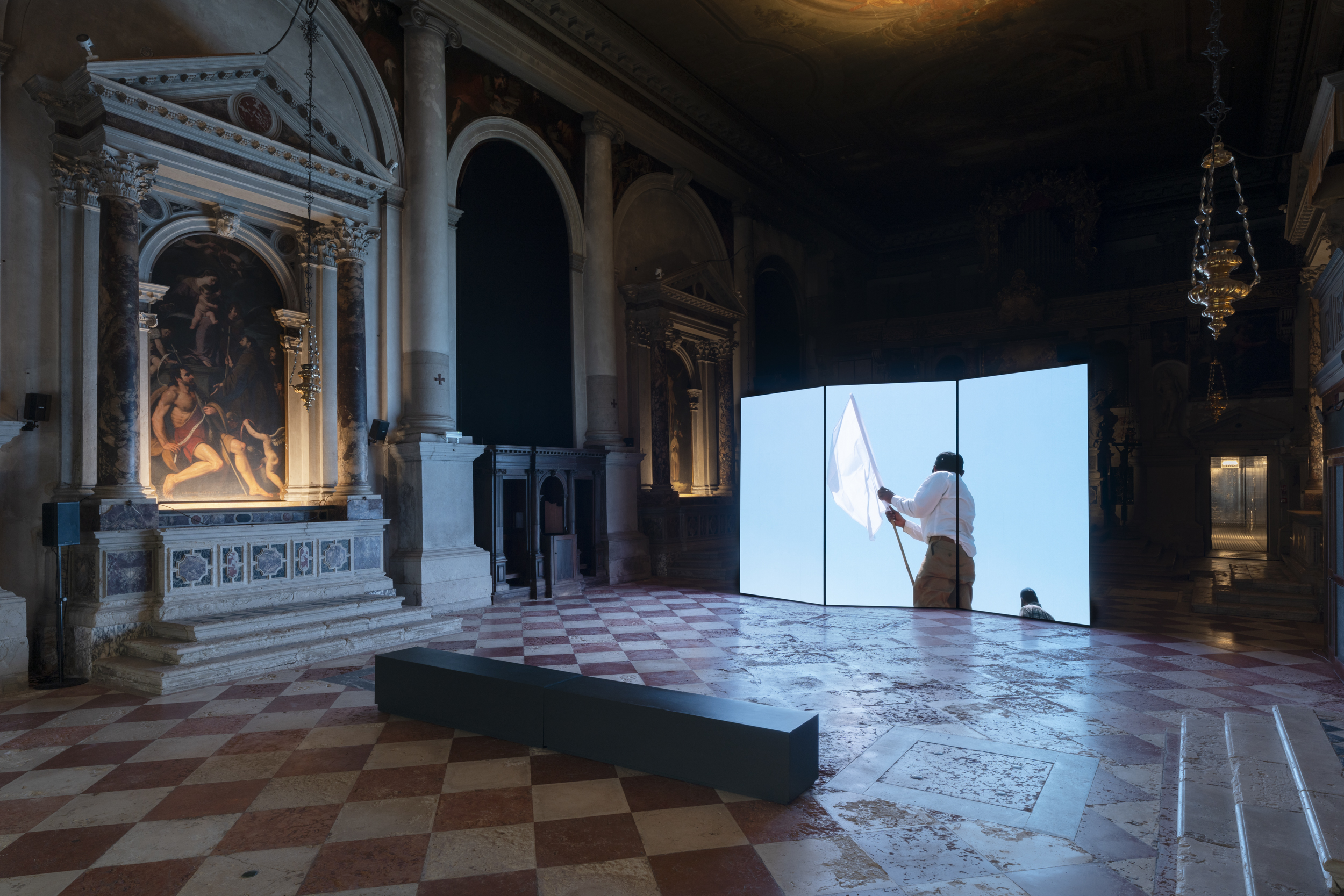 Enter the immersive world of film noir at a disused hospital in Venice
Enter the immersive world of film noir at a disused hospital in VeniceFondazione In Between Art Film returns to Venice with ‘Nebula’, by curators Alessandro Rabottini and Leonardo Bigazzi
By Amah-Rose Abrams
-
 Alternate worlds and end of days: Pierre Huyghe in Venice
Alternate worlds and end of days: Pierre Huyghe in VenicePierre Huyghe delves into dystopia with 'Liminal', at Palazzo Grassi’s Punta della Dogana in Venice
By Amah-Rose Abrams
-
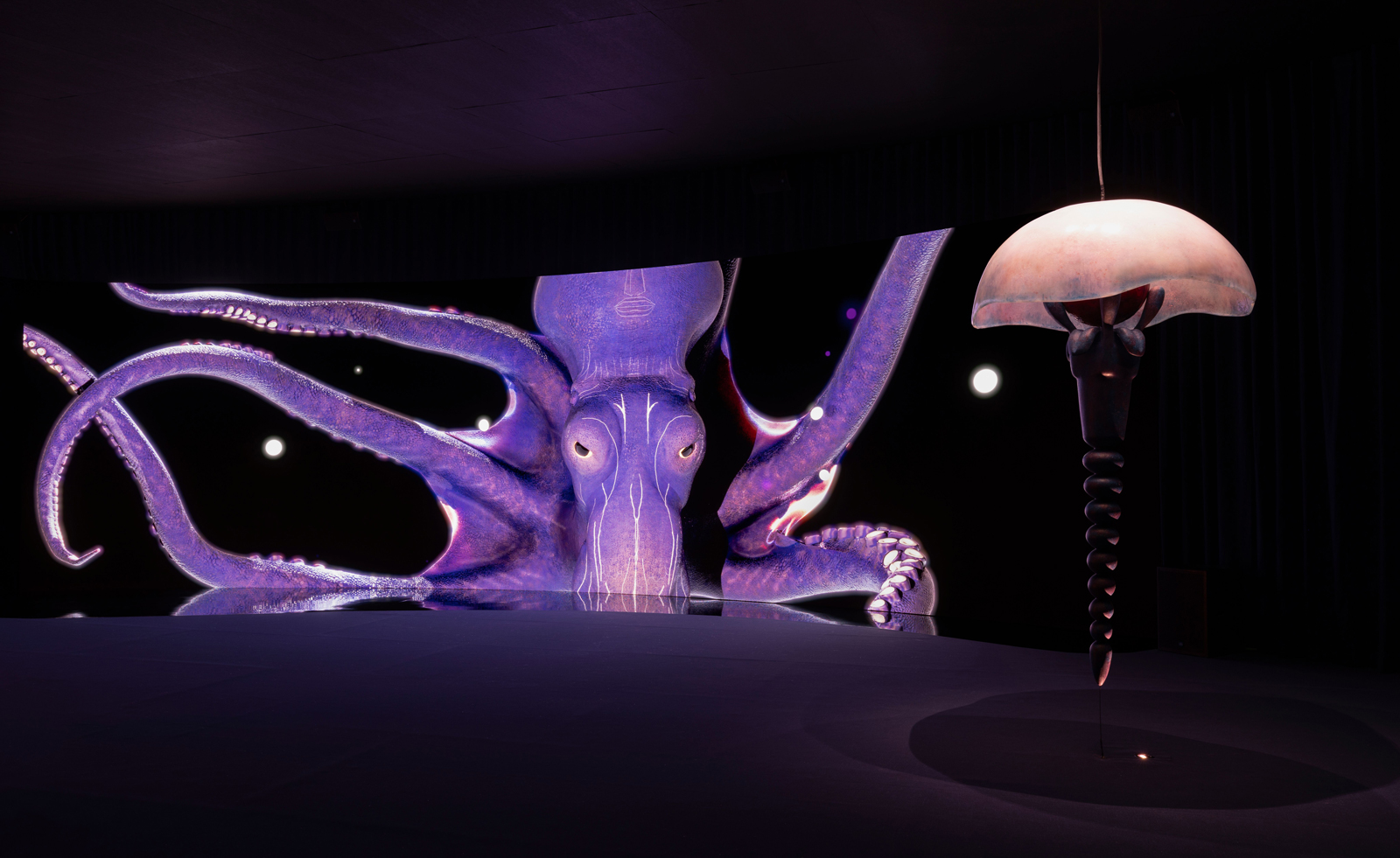 Josèfa Ntjam on her surreal utopias in Venice
Josèfa Ntjam on her surreal utopias in VeniceArtist Josèfa Ntjam and LAS Art Foundation bring other worlds to life with ‘swell of spæc(i)es’ at Accademia di Belle Arti di Venezia during the Venice Biennale 2024
By Hannah Silver
-
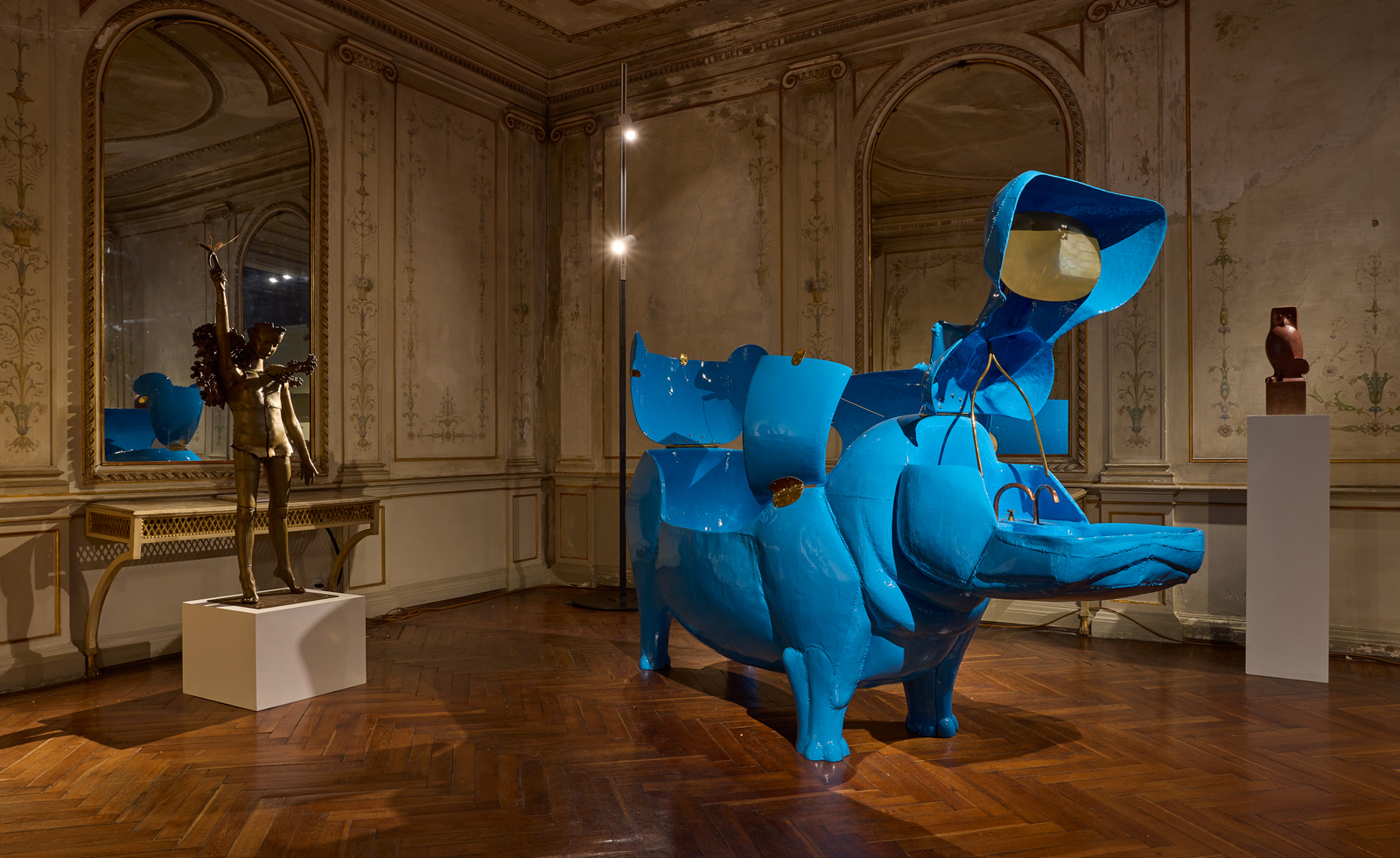 Les Lalanne’s surreal world takes over Venice
Les Lalanne’s surreal world takes over Venice‘Planète Lalanne’, presented by Ben Brown Fine Arts, takes over Palazzo Rota Ivancich, with a cast of blue hippos, woolly sheep and giant grasshoppers
By Hannah Silver
-
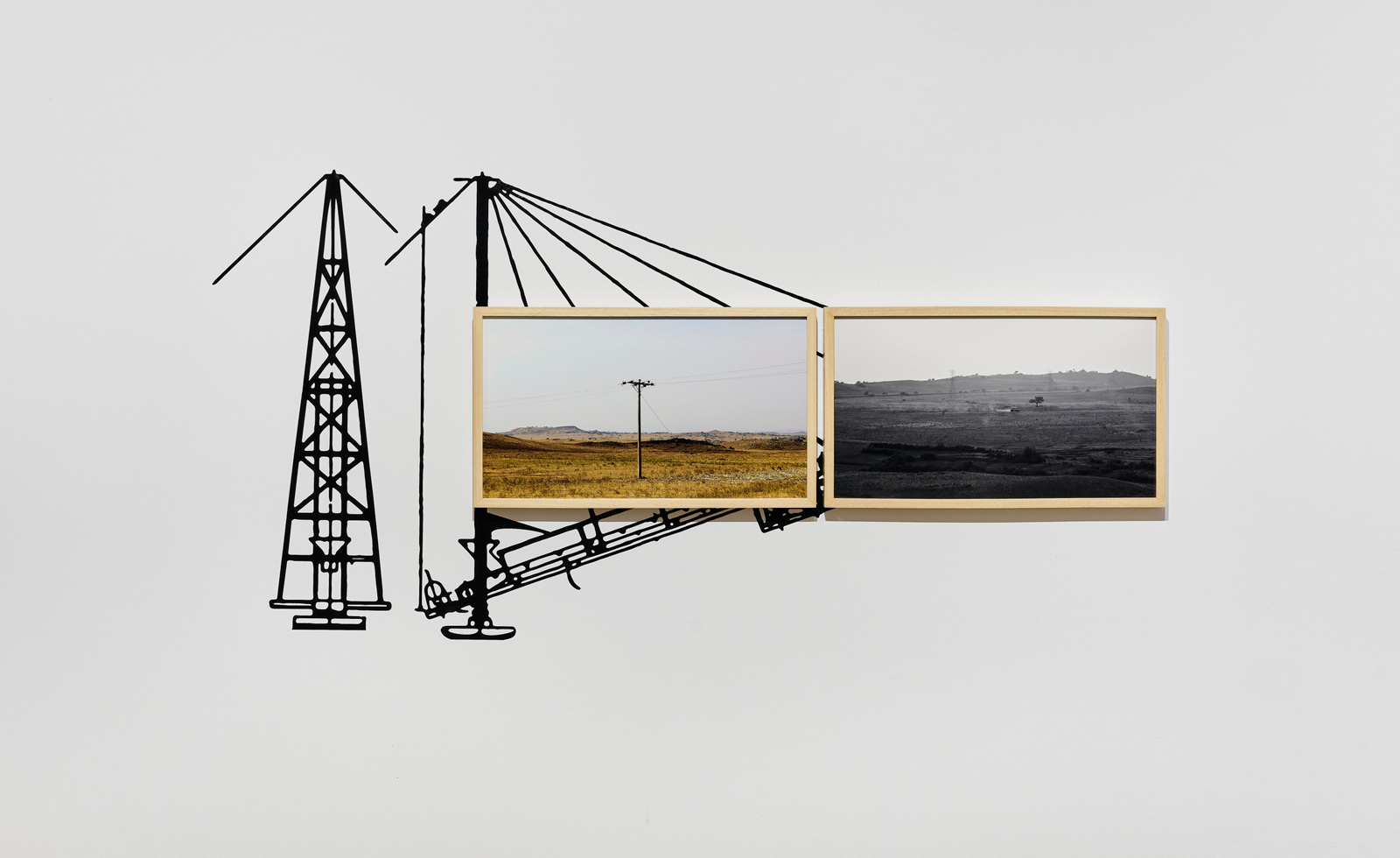 Aindrea Emelife on bringing the Nigerian Pavilion to life at the Venice Biennale 2024
Aindrea Emelife on bringing the Nigerian Pavilion to life at the Venice Biennale 2024Curator Aindrea Emelife has spearheaded a new wave of contemporary artists at the Venice Biennale’s second-ever Nigerian Pavilion. Here, she talks about what the world needs to learn about African art
By Ugonna-Ora Owoh
-
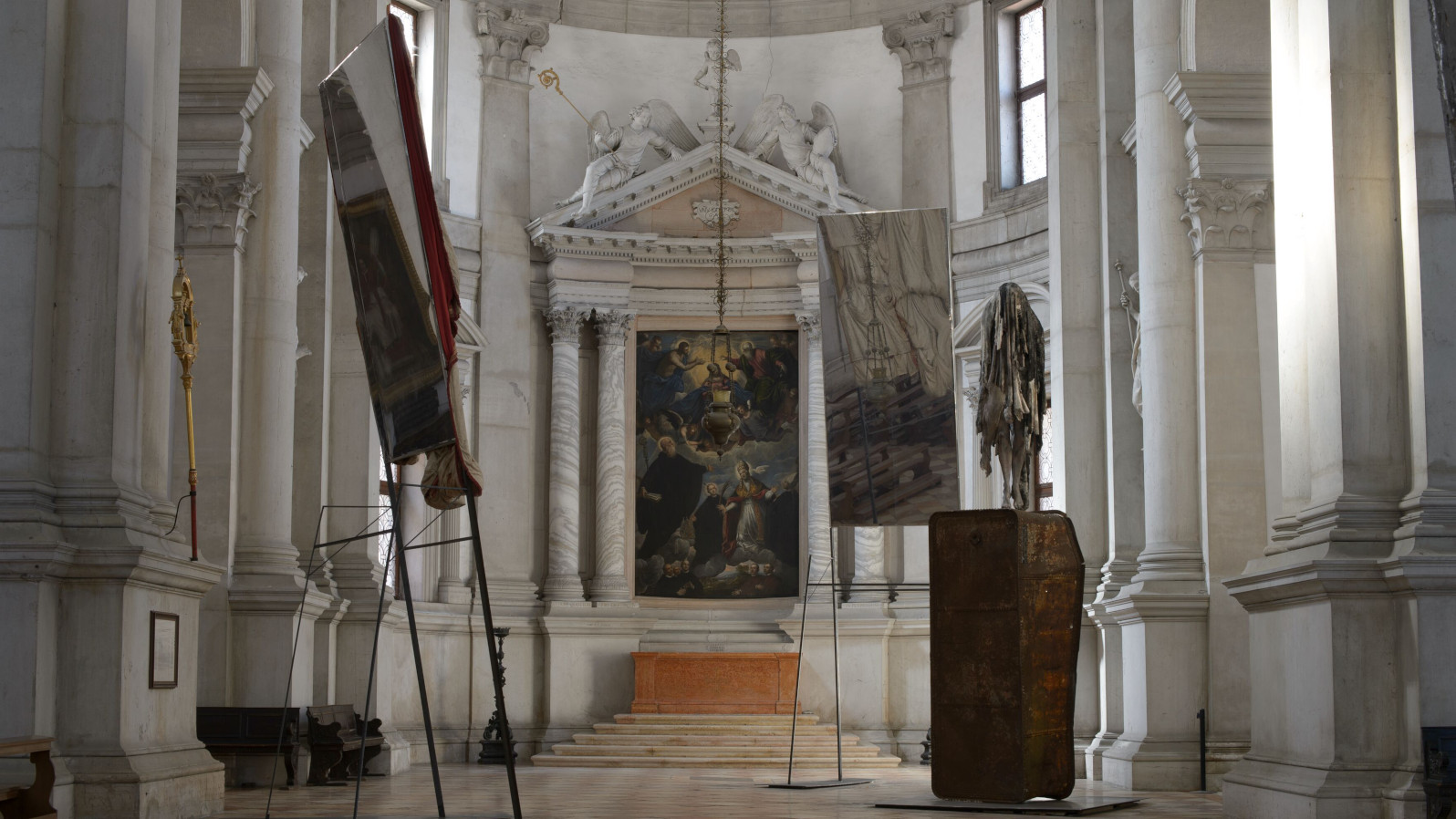 Berlinde De Bruyckere’s angels without faces touch down in Venice church
Berlinde De Bruyckere’s angels without faces touch down in Venice churchBelgian artist Berlinde De Bruyckere’s recent archangel sculptures occupy the 16th-century white marble Abbazia di San Giorgio Maggiore for the Venice Biennale 2024
By Osman Can Yerebakan